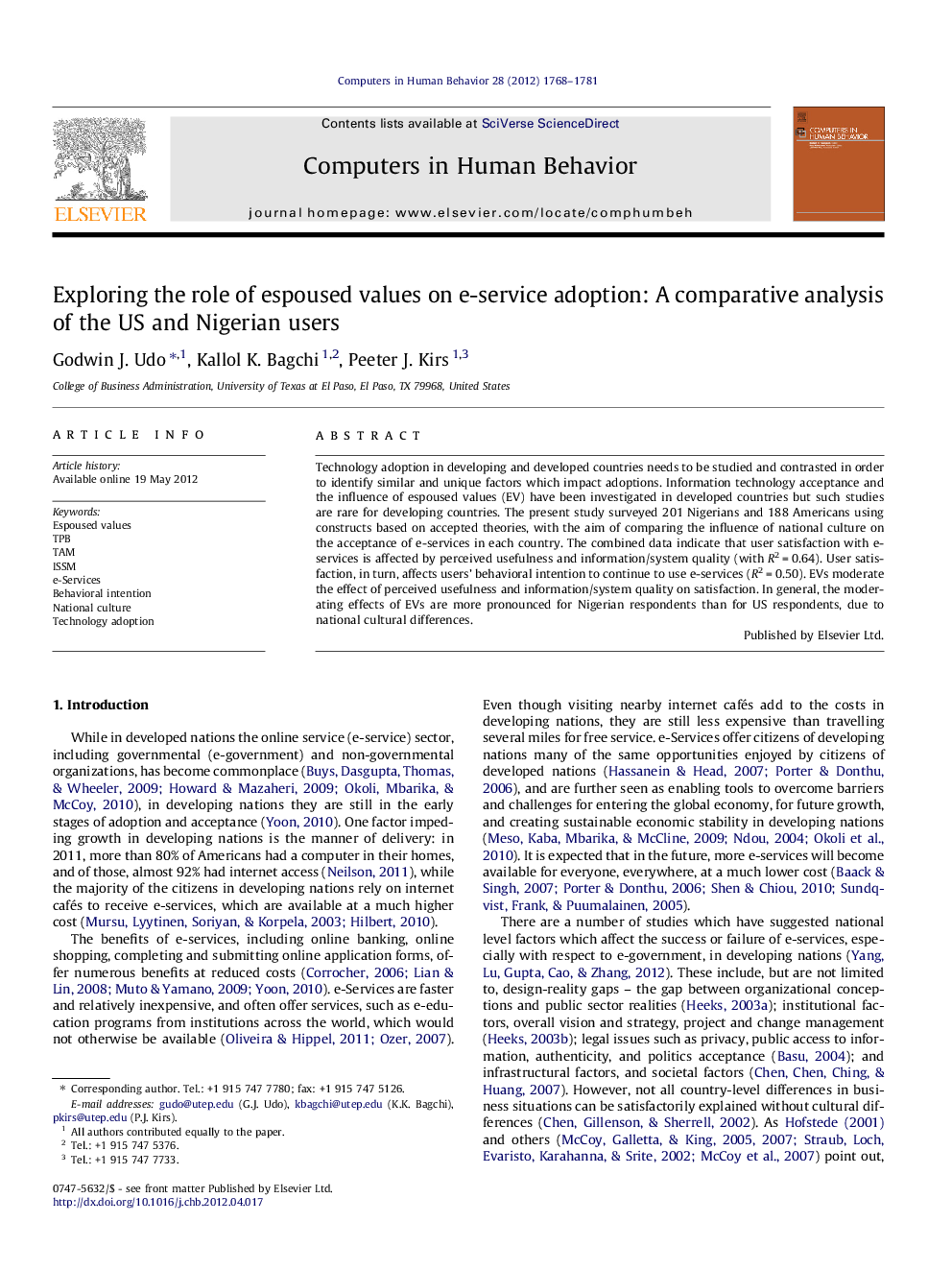| Article ID | Journal | Published Year | Pages | File Type |
|---|---|---|---|---|
| 351119 | Computers in Human Behavior | 2012 | 14 Pages |
Technology adoption in developing and developed countries needs to be studied and contrasted in order to identify similar and unique factors which impact adoptions. Information technology acceptance and the influence of espoused values (EV) have been investigated in developed countries but such studies are rare for developing countries. The present study surveyed 201 Nigerians and 188 Americans using constructs based on accepted theories, with the aim of comparing the influence of national culture on the acceptance of e-services in each country. The combined data indicate that user satisfaction with e-services is affected by perceived usefulness and information/system quality (with R2 = 0.64). User satisfaction, in turn, affects users’ behavioral intention to continue to use e-services (R2 = 0.50). EVs moderate the effect of perceived usefulness and information/system quality on satisfaction. In general, the moderating effects of EVs are more pronounced for Nigerian respondents than for US respondents, due to national cultural differences.
► Perceived usefulness and information/system quality influence e-service user satisfaction. ► User satisfaction, in turn, affects users’ behavioral intention to continue to use e-services. ► Espoused values (EV) have significant moderating effects on user satisfaction. ► Overall, the moderating effects of EV are more pronounced for Nigerian than the US respondents. ► The tested integrated model provides a bridge between design and implementation decisions.
